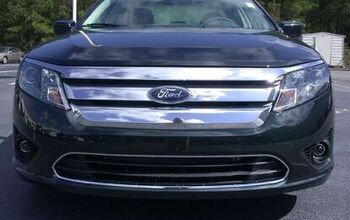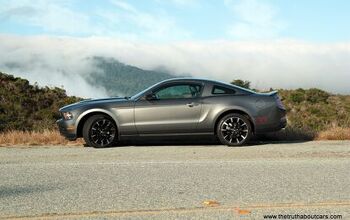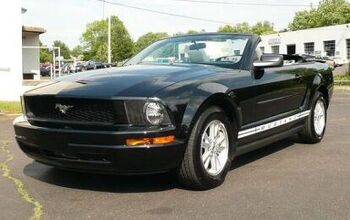Movie Review: Ford V Ferrari

The motion picture industry has been making movies about cars and car racing since the silent film era. After all, they’re called “motion” pictures, and race cars certainly do move. Racing has other elements, as well, that provide for dramatic and entertaining stories, not the least of which is life-or-death danger.
In many cases, though, racing movies have disappointed either car enthusiasts for their lack of realism, or their financial backers for their less-than-blockbuster ticket sales. Now and then, however, a gifted director gets the budget, the actors, the story, and the technical wherewithal to make a film that resonates with both knowledgeable enthusiasts and the general public.
James Mangold appears to have accomplished that with Ford v Ferrari (Le Mans ’66 in foreign markets) starring Matt Damon as Carroll Shelby (who needs no introduction on this site) and Christian Bale as Ken Miles, the star-crossed but exceptionally talented driver and mechanic whose personal story provides the film’s main dramatic arc.
It’s an entertaining and visually beautiful film that has already grossed over $100 million dollars in less than two weeks and looks to end up as the most financially successful racing movie ever. I watched it at a theater in Birmingham, Michigan — an affluent Detroit suburb — at the early evening showing on the second Saturday of the film’s release, which was sold out.
While Ford v Ferrari makes for a fine movie, it’s a terrible documentary. It’s absolutely true that Shelby, Miles and the rest of the Shelby American team whipped the GT40 into fighting trim, battling the bureaucracy at Henry Ford II’s family firm before they could take on Enzo Ferrari at Le Mans. In that sense, Ford v Ferrari is a buddy flick and way, way more. Yes, it’s “based” on a true story, but from how the history is recorded, about half of the movie didn’t happen in real life.
I won’t bother recounting the factual inaccuracies, stretchings of truth, and outright fiction in the film. You can find plenty of articles on that topic already. Just about any movie, though, requires some suspension of disbelief, and the acting and filmmaking is on a level that allows you to enjoy the movie even as you are telling yourself, “But that’s not how it really happened.”
As a dramatic movie, Ford v Ferrari probably works better than any racing movie I can think of, but from a technical standpoint I don’t think the racing scenes quite live up to the standards set by Ron Howard in Rush and John Frankenheimer in Grand Prix (who pretty much wrote the book on how to shoot cars racing on a track).
The cars are gorgeous, however. The GT40 and Ferrari P3/4 are two of the most attractive automobiles ever made and the cinematography puts them in the kind of light that can only be realized with real cars on a real track, not CGI. However, if the GT40 was really doing 218 down the Mulsanne straight, it looked like it wasn’t going nearly that fast past the trees in the background in the film. Also, as Casey Putsch pointed out in his review, there was entirely too much of drivers taking their eyes off the road ahead and turning their heads to look at and grimace at competitors. That, however, is a racing movie cliche that goes back at least as far as the late silent era film The Speedway from 1929.
Still, I think car enthusiasts will like it, if they can suspend their disbelief at the liberties taken with the truth, and that should be easy. It’s beautifully shot, the characters are engaging and it’s far from a typical sports movie that ends with the underdog’s victory. Using Ken Miles as the main protagonist gives the story a dramatic arc with an actual denouement: Miles’ death. That’s not a spoiler, it’s history. Miles was killed two months after the 1966 Le Mans race, while testing the Ford “J Car”, the intermediate development between the GT40 that won in ’66 and the GT40 MKIV that Dan Gurney and A.J. Foyt drove to victory at Le Mans the following year.
There are a lot of strong performances in the film besides Damon and Bale. Tracy Letts is being mentioned for a Best Supporting Oscar for his portrayal of Henry Ford II, but I think Ray McKinnon steals the show as Phil Remington. The movie deserves considerable props for showing Remington as the technical and fabricating genius behind Shelby American, even if the movie’s publicity materials erroneously perpetuate the myth that Carroll Shelby was a “car designer.”
Ultimately, I think that’s the film’s most enduring value to car guys — it gives proper credit to people like Remington and Miles, the Armando Galarraga of motorsports. Every baseball fan knows that the former Detroit Tigers pitcher got screwed out of a perfect game by an umpire’s admitted blown call on what should have been the final out. Anyone who knows the story about Ford’s GT40 effort knows that Miles was the de facto winner of the 1966 Le Mans race, even if Bruce McLaren was awarded the trophy because of the 1-2-3 photo finish arranged at the behest of Ford executives and a technicality in the Le Mans rules.
It’s not a perfect movie; Josh Lucas plays Leo Beebe, a senior Ford executive who takes the role of Shelby and Miles’ antagonist in the film. Lucas’ Beebe is a smarmy, almost cartoon caricature of a corporate snake, portrayed as more villainous than Enzo himself. That’s not necessarily Lucas’ fault — that’s just how the character is written and perhaps the role was influenced by Ford Motor Company’s reputation back then as being a political nightmare of ambitious executives jealous of others’ fiefdoms while they zealously protected their own. How much Beebe really stood in the way of Shelby and Miles is open to debate. The filmmakers could have just as easily focused on the genuine personal grudge between Shelby and Ferrari. As an up and coming racer (who would eventually win Le Mans for Aston Martin) Shelby turned down multiple offers of a factory ride from Il Commendatore. Shelby didn’t like how his friends who drove for Enzo ended up dead for their efforts and for his part, Ferrari was insulted that Shelby wouldn’t risk his life for the honor of driving with Ferrari.
One criticism of the film that I don’t think is fair has come from the “woke” crowd, complaining that the movie’s characters are almost entirely male, presumably of the straight white variety, capitalist planet despoilers and fossil fuel burners who should be as extinct as the decayed dinosaurs they are burning. The character of Mollie Miles, Ken Miles’ wife, played by Caitriona Balfe, has been criticized for being a more or less a traditional housewife, there to provide emotional support for her husband — ignoring that the story takes place no later than 1966, a time when most married women were indeed traditional housewives.
Like Forester wrote, the past is a foreign country; they do things differently there. I don’t watch movies with a checklist to keep track of how many characters have what kind of genitals, nor a stopwatch to see if screen time has been allocated equitably and intersectionality, so I can’t say this for sure, but it seems to me that Balfe was on the screen more than either Letts or Remo Girone’s Enzo Ferrari, the two title characters.
If you’re not dangerously allergic to gasoline or testosterone, you should like Ford v Ferrari. Worthy of the ticket price and a spot reserved on your DVD shelf next to your copies of Rush, Grand Prix, Paul Newman’s Winning, and Steve McQueen’s Le Mans.
[Images: 20th Century Fox]

Ronnie Schreiber edits Cars In Depth, the original 3D car site.
More by Ronnie Schreiber
Latest Car Reviews
Read moreLatest Product Reviews
Read moreRecent Comments
- Lorenzo They won't be sold just in Beverly Hills - there's a Nieman-Marcus in nearly every big city. When they're finally junked, the transfer case will be first to be salvaged, since it'll be unused.
- Ltcmgm78 Just what we need to do: add more EVs that require a charging station! We own a Volt. We charge at home. We bought the Volt off-lease. We're retired and can do all our daily errands without burning any gasoline. For us this works, but we no longer have a work commute.
- Michael S6 Given the choice between the Hornet R/T and the Alfa, I'd pick an Uber.
- Michael S6 Nissan seems to be doing well at the low end of the market with their small cars and cuv. Competitiveness evaporates as you move up to larger size cars and suvs.
- Cprescott As long as they infest their products with CVT's, there is no reason to buy their products. Nissan's execution of CVT's is lackluster on a good day - not dependable and bad in experience of use. The brand has become like Mitsubishi - will sell to anyone with a pulse to get financed.




































Comments
Join the conversation
We can all be thankful they didn't recast this with all females as seems to be the trend nowadays. I'm looking forward to seeing it.
I loved this movie and thought Bale's performance was one for the ages. The guy completely transforms himself physically and mentally for a role. I do wonder if the scene where Shelby takes Ford II for a very scary track ride ever happened. Anybody know? My one peeve about the movie is the same one I have for all racing/car/action movies: drivers talking smack at each other while racing at high speed. I don't know what's worse, car drivers yelling at each other over their roaring 427's at 200mph, or motorcycle pilots insulting each other at 200mph like they're standing in a quiet room with no helmets on. It would be hilarious if someone made a satire flick about this, showing drivers trying to communicate petty insults over wind and engine and tire noise, finally having to used hand signals and head shakes to get their point accross before they run off the track.